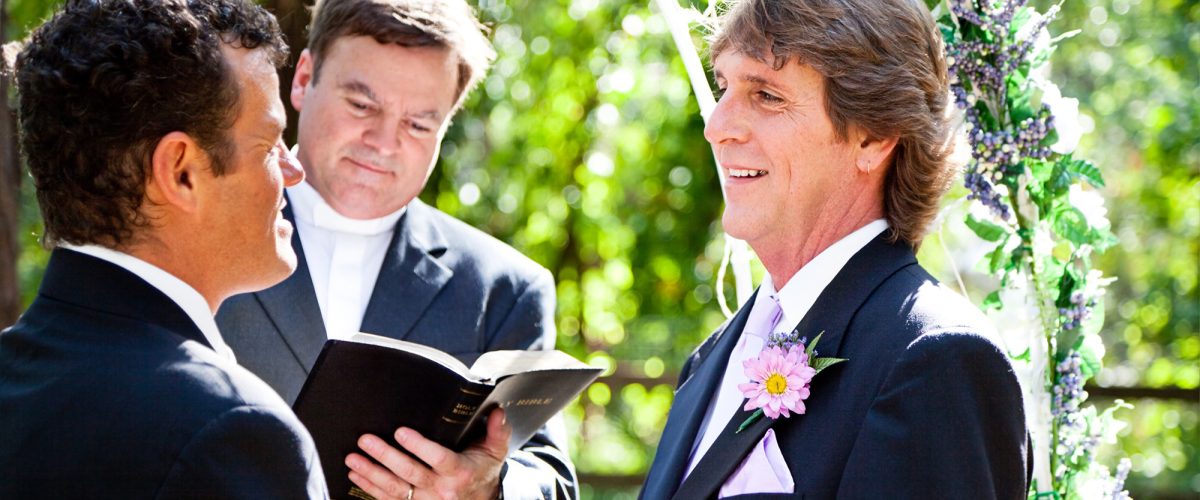The Respect for Marriage Act — headed toward passage in Congress as early as this week — will inflict “undeniable harms” on “countless Americans,” according to an opinion piece in World magazine tweeted out by Al Mohler over the weekend.
“This article is so important we released it on Saturday,” said Mohler, who edits the magazine’s opinion section. “Read it. This is urgently important.”
 The opinion piece written by Kristen Waggoner president and general counsel at Alliance Defending Freedom sounds an alarm that Christian beliefs and values are in dire danger if the protections for same-sex and interracial marriage become law.
The opinion piece written by Kristen Waggoner president and general counsel at Alliance Defending Freedom sounds an alarm that Christian beliefs and values are in dire danger if the protections for same-sex and interracial marriage become law.
At issue are amendments added to the bill in the Senate expressly to preclude any infringement on the current rights of free religious practice by churches. Waggoner believes those protections are not enough because they don’t give religious conservatives the leverage they want.
The amendments are “hogwash,” writes Waggoner, whose organization currently represents a Colorado website designer with a case before the U.S. Supreme Court challenging a nondiscrimination law. Alliance Defending Freedom is a conservative legal aid firm specializing in such cases.
What’s specifically wrong with the amendments to the “intentionally misnamed” Respect for Marriage Act according to Waggoner? Three things:
First, the amendments protect things that are already protected.
The language “addresses one of the few settings where same-sex marriage (and accompanying sexual orientation laws) hasn’t created religious liberty problems,” she admits. “Laws are simply not being used to force houses of worship to celebrate same-sex weddings. In its 2018 Masterpiece Cakeshop decision, the Supreme Court said that would violate the First Amendment.”
Second, “existing legal protections (such as the First Amendment and analogous state constitutional provisions) are entirely adequate” to protect what is covered in the amendments, she adds.
“No reasonable person thinks the government could get away with forcing houses of worship to do same-sex weddings. So, if activists someday try to force churches to host and perform such ceremonies, they won’t need the RFMA to win their cases.”
Third, the First Amendment is insufficient to provide the kinds of protections religious conservatives want, she writes.
“Judges may use that language to conclude that this provision is no more protective than the First Amendment — meaning that the bill does nothing.”
“Supporters confidently contend that the protections (in the bill) are absolute. But the entire subsection of the bill is qualified with the phrase ‘consistent with the First Amendment.’ Judges may use that language to conclude that this provision is no more protective than the First Amendment — meaning that the bill does nothing.”
Offering up the First Amendment as sufficient protection for religious conservatives “is hardly some sort of generous concession to religious liberty, given that Congress (thankfully) lacks the authority to repeal the First Amendment in the first place,” Waggoner writes.

Kristen Waggoner
From her perspective, the Senate amendments do nothing because “Democrats gave up nothing” and “Republicans gained nothing.”
Instead of offering conservative Christians the kind of permission to discriminate against LGBTQ persons and same-sex weddings they desire, the Respect for Marriage Act “fuels hostility toward Americans who hold beliefs about marriage rooted in honorable or philosophical premises,” she contends.
“It imposes a new obligation to recognize same-sex relationships on religious organizations that work closely with government. It creates new tools for progressive activists and the Department of Justice to enforce that obligation. It gives the Internal Revenue Service a new argument for taking tax-exempt status away from religious non-profits. It makes religious freedom and free speech cases harder to win by elevating the federal government’s interest in same-sex marriage.”
That’s a dramatically different view than the explanation given by Sen. Tammy Baldwin, D-Wisc., sponsor of the amendments.
Her website explains: “The Respect for Marriage Act is a narrow but important bill that would do two primary things. First, it would require the federal government to recognize a marriage between two individuals if the marriage was valid in the state where it was performed. Second, the bill would guarantee that valid marriages between two individuals are given full faith and credit, regardless of the couple’s sex, race, ethnicity or national origin, but the bill would not require a state to issue a marriage license contrary to state law.“

Sen. Tammy Baldwin
The bill would have “no negative impact on religious liberty and conscience protections,” she says.
The amendments:
- Protect “all religious liberty and conscience protections available under the Constitution or federal law.”
- “Confirms that nonprofit religious organizations will not be required to provide any services, facilities or goods for the solemnization or celebration of a marriage.”
- “Guarantees that this bill may not be used to deny or alter any benefit, right or status of an otherwise eligible person or entity — including tax-exempt status, tax treatment, grants, contracts, agreements, guarantees, educational funding, loans, scholarships, licenses, certifications, accreditations, claims, or defenses — provided that the benefit, right or status does not arise from a marriage.”
Last week, the bill passed a procedural hurdle in the Senate with help of 12 Republican senators — including Utah Sen. Mitt Romney — joining Democrats in support. The Church of Jesus Christ of Latter-day Saints gave its support to the bill as well, surprising many observers.
The LDS church doctrine “related to marriage between a man and a woman is well known and will remain unchanged,” the church said in a news release. “We are grateful for the continuing efforts of those who work to ensure the Respect for Marriage Act includes appropriate religious freedom protections while respecting the law and preserving the rights of our LGBTQ brothers and sisters.”
Recent polling has found 70% of Americans now support same-sex marriage and that conservative evangelicals are outliers in their steadfast opposition.
Related articles:
Supreme Court to hear case of wedding website designer who won’t serve same-sex couples
Panelists say supporting Respect for Marriage Act is a matter of faith
Bill to protect same-sex and interracial marriage now appears likely to become law


